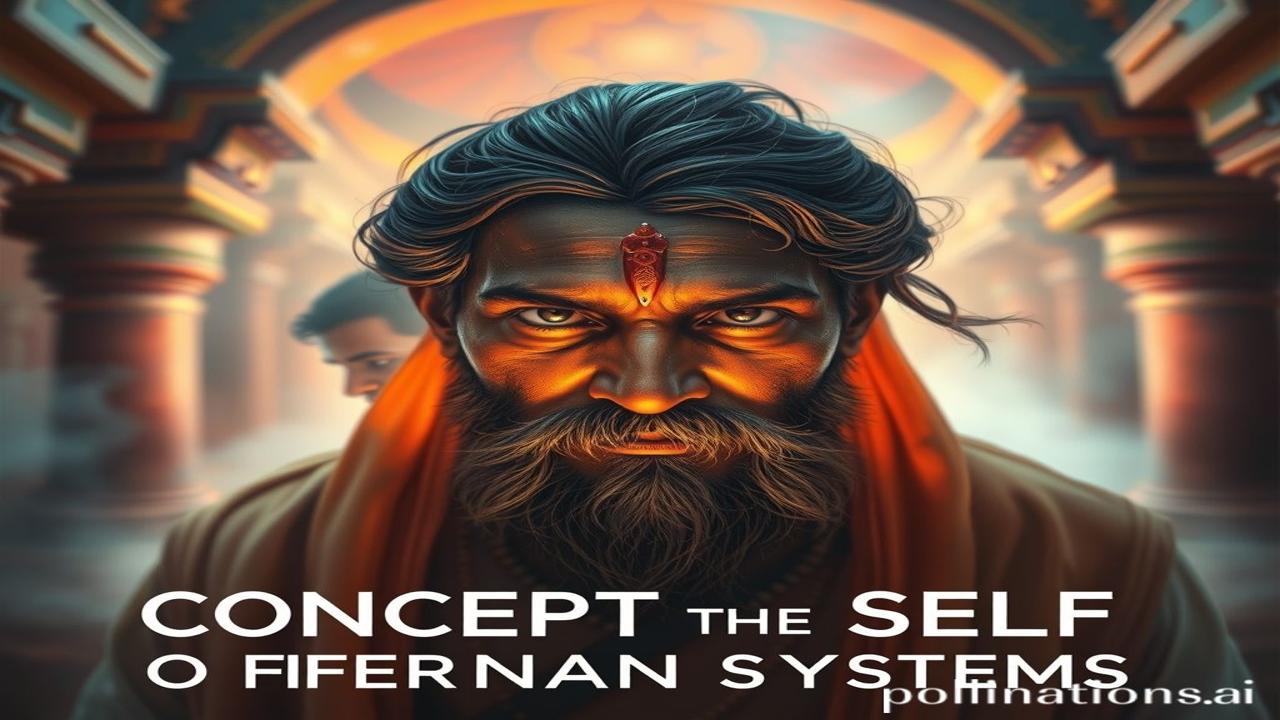Kya Aap Jaante Hain, Yeh “Main” Kya Hai? Exploring the Concept of Self in Different Indian Systems
Kabhi socha hai, jab mandir ki ghanti bajti hai, toh woh dhwani sirf kaano mein nahi, balki andar, kahin gehri, ek aatma se bhi takraati hai? Woh aatma, woh “main” – yeh kya hai? India mein, iska jawab itna aasaan nahi. Yeh ek paheli hai, jo hamare darshanon (philosophies) aur sanskriti (culture) mein hamesha se chupi hui hai. Chaliye, aaj isi khoj par nikalte hain.
The Quest for “Aham”: A Historical and Cultural Journey
The concept of “self,” or “aham” (अहम्) as we say in Sanskrit, is a central theme across various Indian philosophical systems. But the beauty lies in the diverse interpretations. From the ancient Vedic period (around 1500 BCE) right up to the modern era, thinkers have grappled with understanding the true nature of the individual.
Why is this important? Because understanding ourselves – our desires, motivations, and place in the universe – is crucial for a fulfilling life according to Indian thought. This isn’t just about personal happiness; it’s about contributing to the harmony of the entire cosmos! It’s important to remember that this journey isnt only about understanding individual self but also finding our place in the cosmic dance, contributing to the balance and harmony of the universe.
Different schools like Vedanta, Samkhya, Yoga, Buddhism, and Jainism offer distinct perspectives. Vedanta, for instance, emphasizes the ultimate unity of the individual soul (Atman) with the universal soul (Brahman). Samkhya, on the other hand, proposes a dualistic view of Purusha (consciousness) and Prakriti (matter).
Rooh Ki Gahraiyon Mein: People, Life, and the Search for Self
Imagine a yogi, sitting in deep meditation by the banks of the Ganga. He’s trying to quiet his mind, to peel away the layers of illusion that hide his true self. He chants mantras, trying to feel the Brahman in himself, he hopes to be connected with the divine self.
Or picture a Jain monk, practicing rigorous self-discipline, determined to shed all attachments and karmic burdens. His goal: to purify his soul (Jiva) and achieve liberation (Moksha).
Ma Yashoda, Krishna ko god mein lekar baiti hain. Woh unke nannhe haath chuum rahi hain. Unke liye, Krishna unka “main” hai, unki shakti hai, unka pyar hai. Her identity is woven in his existence.
These aren’t just abstract concepts; they are lived realities shaping daily lives. Rulers sought spiritual guidance, artisans infused their creations with deeper meaning, and everyday individuals strived to live ethically and purposefully, all guided by their understanding of the “self.”
Aaj Ki Dharohar: Echoes of the Past in the Present
Even today, the echoes of these ancient philosophies resonate throughout India. You see it in the intricate yoga postures, the chanting of mantras, the devotional songs, and even in the way people approach life and death. The philosophy of ‘Atithi Devo Bhava’ which means ‘The guest is equivalent to god’ showcases the way people are taught to treat another person as a form of God, not as a regular person.
Bharatiyata, the essence of Indianness, is deeply intertwined with this constant exploration of the “self.” It’s about understanding our connection to something larger than ourselves, whether it’s family, community, nation, or the universe. It’s what differentiates us from other cultures, it’s the thread that binds us together through time.
Kuch Anokhi Baatein: Fun Facts and Myth-Busters
Log aksar samajhte hain ki Indian philosophy mein sirf tyag aur sanyaas hai. They believe that Indian Philosophy is only about letting go and renunciation. But the truth is, many systems, like Advaita Vedanta, emphasize realizing the divine within while living a fulfilling life in the world. The focus isn’t always on escaping the world, but on transforming our understanding of it.
Aankhon Dekhi, Dil Se Mehsoos: Visuals and Sensations
Imagine walking through the ancient temples of Khajuraho. The scent of incense fills the air, mingling with the sweet aroma of flowers offered to the deities. The cool, smooth stone feels solid beneath your feet as you gaze at the intricate carvings depicting scenes of life, love, and devotion. The sounds of Vedic chants and the melodious strains of a flute create an atmosphere of serenity and awe. You feel your connection to something greater, it is a feeling of being connected to the God.
Antim Vichar: A Closing Thought
The concept of self in Indian systems is not a static definition but a continuous journey of self-discovery. It’s about understanding our place in the universe and striving to live a life of purpose and meaning.
As the Bhagavad Gita beautifully states: “uddhared ātmanātmānaṁ nātmānam avasādayet | ātmaiva hyātmano bandhur ātmaiva ripur ātmanaḥ” – Uplift yourself by yourself. Do not degrade yourself. For you alone are your friend, and you alone are your enemy.
Toh, yeh “main” kya hai? The answer, my friends, lies within you. Explore, question, and discover. The journey itself is the destination.
